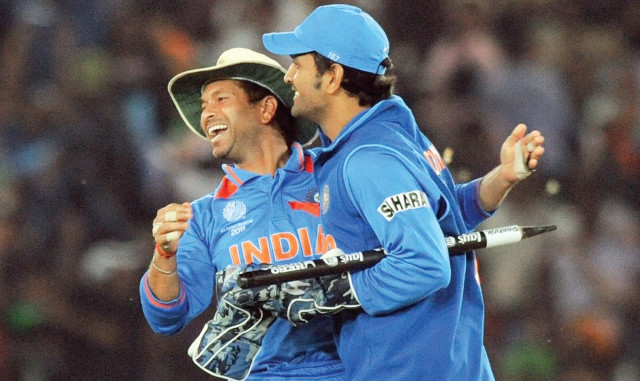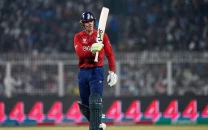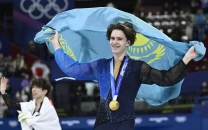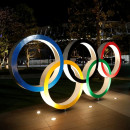There’s something about Dhoni
His credo is: What is the worst that can happen, we can only lose.

He would utter the customary ‘good luck’ and move on to the field where, again, he would speak if needs be. Yet, Chennai Super Kings, the team Dhoni leads, has won two titles in a row as well as the Champions League. And, Dhoni is also the reigning World Cup winning captain, having also won the inaugural World Twenty20.
From the outside, Dhoni’s actions seem more impromptu, more incidental. Yet there’s a lot going on in his mind.
In the World Cup final, he promoted himself ahead of Yuvraj Singh, a man who had scored more runs in the tournament than his teammates. Till then, Dhoni had managed just 150 runs in seven matches. But then he sensed the opportunity to gamble. While he admitted ‘it was a big, big move’ but April 2, 2011 is now one of the most glorious chapters of Indian cricket history and Dhoni was the script writer, playing one of the most memorable knocks in the game’s history.
It was not the first time Dhoni had walked a tightrope blindfolded. In the 2010 IPL final, Chennai were pitted against Mumbai with the hosts needing 33 off 12. Kieron Pollard was itching to have a go and punch Chennai into submission, having already hit Albie Morkel for four. Before Morkel turned back to deliver the final ball, Dhoni moved Mathew Hayden from first slip to a peculiar spot in front of mid-off, almost in line with the stumps. Morkel was bowling yorkers. Normally captains get fine-leg and third-man in and send deep midwicket back but instead, Dhoni got a straighter mid-off. If Morkel pitched it right, Dhoni knew Pollard would find it hard to get the elevation. Inadvertently, Pollard hit it straight into Hayden’s hands.
There have not been many astute leaders who are as tactically sound as Dhoni. His biggest strength is his clarity of thought. And he won’t step down from what he feels is right. Like all great leaders, Dhoni believes in himself and trusts his decisions, which are not hostage to the eventual outcome. His credo is: What is the worst that can happen, we can only lose.
He has also ensured that he would not be swayed by critics. One of the most important decisions that Dhoni took was to keep himself away from the ever-engaging media, understanding early on that his words could be double-edged swords. Another fact that Dhoni grasped was that majority of his squad are young and they need the space and time to grow, to understand themselves and their game. There is no point imposing or enforcing things on them. This way he becomes endearing to the youth while the outsiders are enamoured by his charisma.
He stays on the ground. The smile radiates like the sun each time he makes a winning move, but he doesn’t go berserk. Leading India can be a herculean task but Dhoni doesn’t make a huge noise about it. He has understood change can be slow but he won’t compromise on his principles. He will stick to them and find a way out.
Peter Roebuck was not far off the mark when he called Dhoni ‘Obama in whites’.
The writer is an assistant editor at ESPNcricinfo
Published in The Express Tribune, June 5th, 2011.



















COMMENTS
Comments are moderated and generally will be posted if they are on-topic and not abusive.
For more information, please see our Comments FAQ